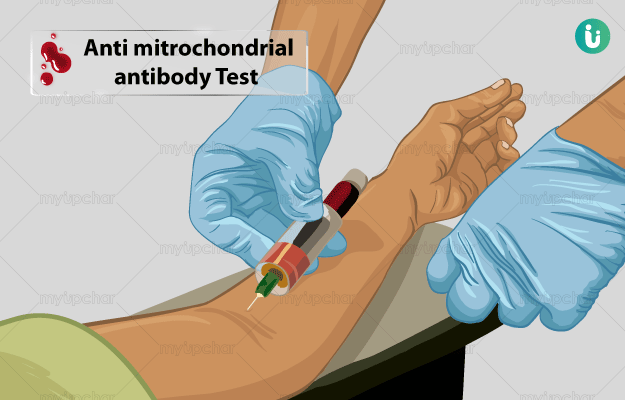What is Antimitochondrial Antibody (AMA) test?
An AMA test helps determine the level of antimitochondrial antibodies in the blood.
Antimitochondrial antibodies are a type of autoantibodies produced against mitochondria. Mitochondria is an important component of body cells. It is mainly responsible for generating energy for metabolic functions. Autoantibodies attack and destroy healthy cells and tissues against which they are produced thus disrupting the normal functioning of the body.
Presence of AMAs in the blood is usually an indication of primary biliary cholangitis (PBC), an autoimmune disease marked by bile duct damage. AMA test is thus most commonly used to diagnose PBC.













